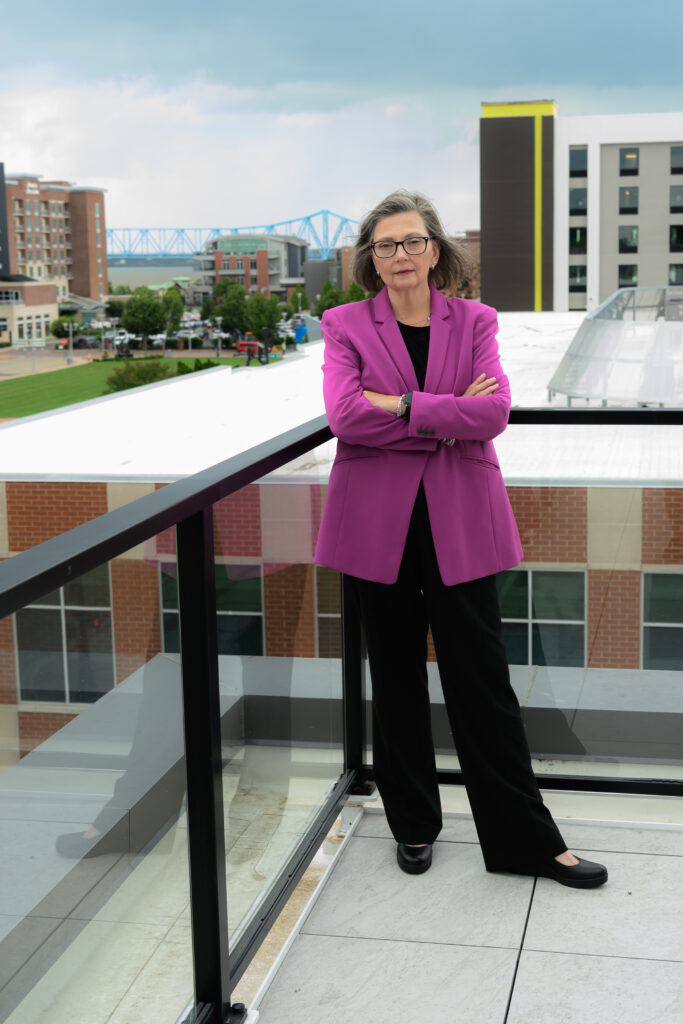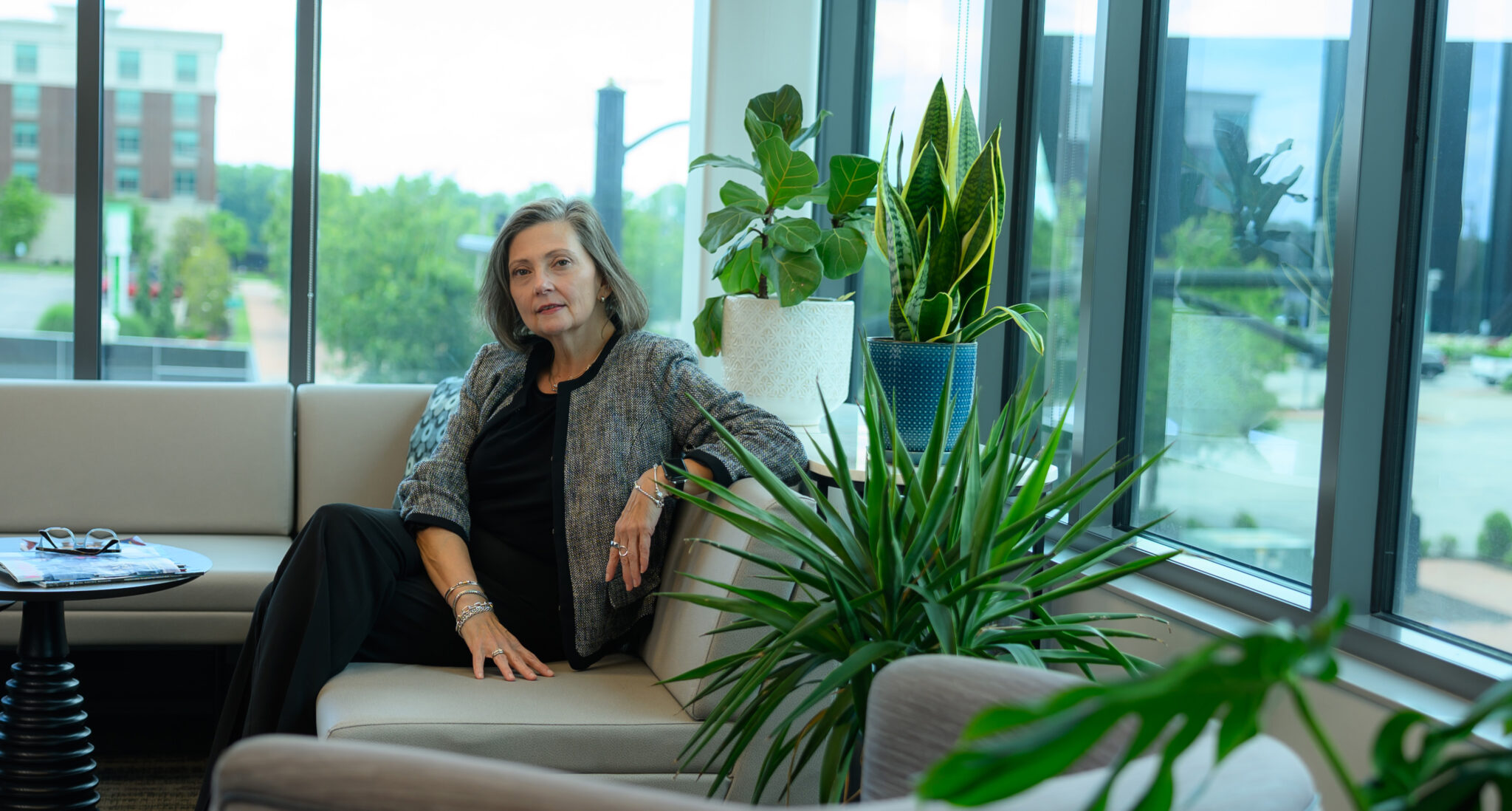Deep in the quiet hills of Jackson County, Kentucky, a young Talina Mathews ’89 held dreams of being a math teacher. In a place where middle school drop-out rates were high and mountainous roads made education inaccessible in the winter, she rode to school every day on a bus driven by her grandfather.
“He wanted to make sure I got there safely, and despite our circumstances, he always pushed for me to get an education.”
Mathews describes the difference between Madison County, where Berea College is located, and Jackson County as quite stark. Jackson County, she says, is not that far in distance, but it is very far in culture. In fact, the counties are adjacent to one another.
Given the culture of her community, college wasn’t something Mathews seriously considered. That is, until high school, when two Berea alumni saw something in her and stepped in to help. Because her school didn’t offer the ACT (a consequence of the county’s sky-high dropout rate), they drove her to Eastern Kentucky University to take the test. That small act of belief changed her life.
Soon, she found herself at Berea.
“Jackson County is homogenous,” she said. “At Berea, I made friends with people from all over the world. I took my friend from New York City to a farm and showed her a cow for the first time—she was terrified. And I thought, if I’d gone home with her, I would’ve been just as scared in her world. We both learned something that day.”
Mathews emphasizes the importance of recognizing that everyone comes to Berea with a similar experience. Whether it be from another part of the world or a place that looks like Jackson County, everybody has a common denominator of need and potential.
“Those Berea serves are exactly what makes it work,” Mathews said. “You learn the academic side, which is rigorous and amazing, but everything else is where your true education is. It’s exposure to folks and lives you would have never had exposure to.”
Starting out as a math education major, Mathews switched to economics after a professor helped her see her strengths. To her surprise, she applied to grad school based on recommendations from her mentors, eventually earning both her master’s and Ph.D. in economics while teaching to support herself.
“I wouldn’t have even known to apply,” as college applications, the ACT and FAFSA® processes are all part of a secret language first-generation students aren’t taught, she says. “But people helped me. I had angels on my shoulder.”

Mathews’ first job out of grad school was at a premier engineering school in rural Michigan. She jokingly reminisced on how familiar it felt. “Same culture as home, really. Extractive economy. Someone had taken the timber and coal and left people with nothing. The resources were depleted, and people were left without jobs. It felt a lot like home.”
From there, her path led her into public service. She became a commissioner on Kentucky’s Public Service Commission, where she helped set utility rates for the entire state. Mathews now serves as the chief financial officer of an electric co-op based in Owensboro, Ky., where she carries her Berea values through the work she does for Kentuckians.
“I think about the people we serve,” she said. “I know how hard they work for their money. Somebody out there is deciding between electricity and medicine. Every dollar I spend is a dollar that came from them.”
A strong sense of responsibility and empathy is something Mathews credits to her time at Berea. She remembers the moment during her first summer at college when her grandmother died. It was a faculty member of the college who drove her back to Jackson County so she could be home for the funeral.
“Berea is full of people like that,” she said. “People who help you carry your burdens.”
Mathews still carries Berea’s mission in every room she walks into, especially when the atmosphere is tense or she feels out of place.
“I’ve been in rooms where Kentucky wasn’t exactly welcome in conversations about greenhouse gases,” she said. “But I spoke up. I showed them how Kentucky powers the manufacturing that keeps fuel costs low. The aluminum that makes your Toyota efficient? It comes from us. Somebody has to make the things. And to make the things, you need electricity.”
Mathews’ passion for Berea and how educational access changed her life shines through her work. She jokingly recalls all the times someone on an airplane has asked where she’s from, or how she got to where she is now. “God bless those people,” she says. “They’re going to hear an earful about Berea.”
Now, she gets to tell that story not just as a proud alumna, but as a trustee.
“It’s an accounting of an immense debt I’ll never be able to repay,” she says. “But it’s an honor. A privilege. I could’ve taken the same math classes anywhere. I could have the same degree from anywhere. But I would not be the same person.”
Mathews boasts endless gratitude for her Berea family’s interest in her as not just a student, but as a whole person with responsibilities, struggles and nuances that extended beyond the classroom. To Mathews, Berea was more than just the classes.
“I came to Berea, and they said, ‘We’re going to help you carry your baggage,’” she says, “‘and then we’re going to help you unpack it.’”



I loved the story about the life and dedication of Talina Matthew’s and her dedication to Berea College and to Berea’s values.